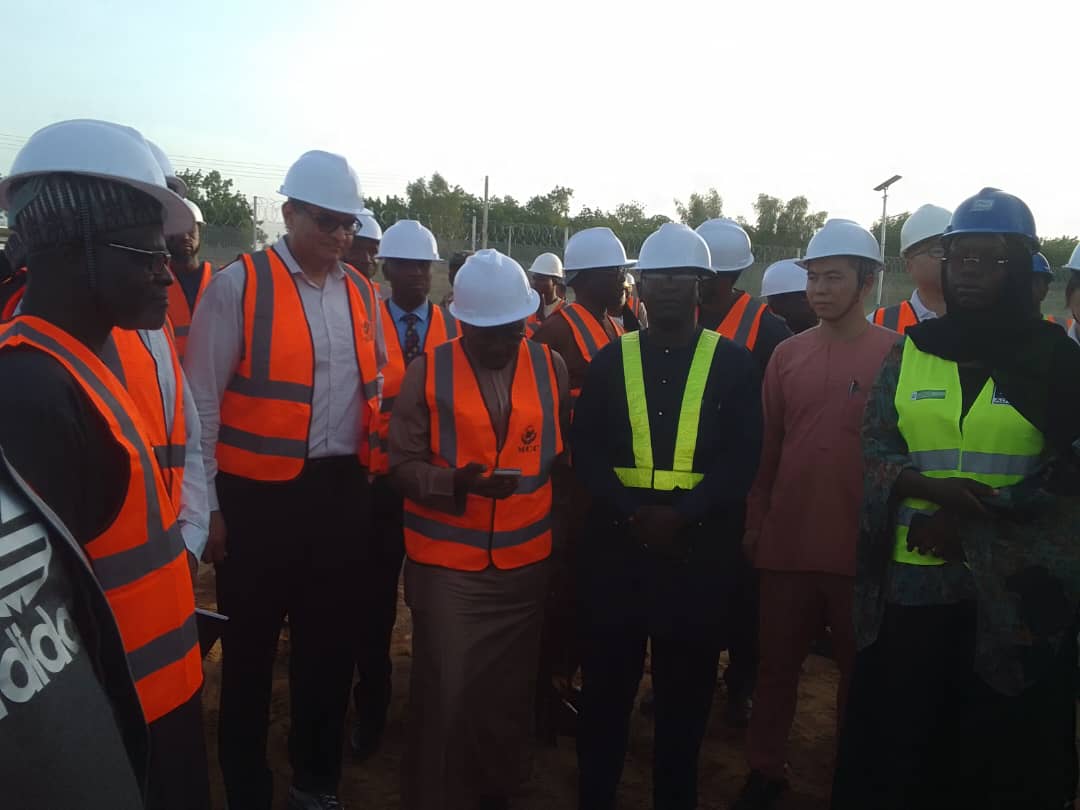Economy
World Bank, Partners FG To Spend $750m To Provide Solar Power To 8 Universities,1 Teaching Hospital

|
Getting your Trinity Audio player ready...
|
World Bank, partners FG to spend $750m to provide solar power to 8 universities, 1 Teaching Hospital
By Madu Mohammed, Maiduguri
The -World Bank Mission is to partner with the Federal Government through the Rural Electrification Agency (REA), is to spend $750 million to provide Solar energy to 8 universities across the country and one Teaching Hospita
through the Energizing Education and Access To Renewable Energy Scale -Up { D•A•R•E•S } programmes under phase IiI of the project.
The World Bank Practice Manager for West Africa,Mr. Ashish Khanna, who disclosed this when he paid a courtesy call on the Acting Governmor of Borno state, Hon. Umar Kadafur at the Government House, Maiduguri, yesterday said already the World Bank has expended $ 350 million in 7 universities and one Teaching Hospital under the second phase, of the project, in which University of Maiduguri and the University of Maiduguri Teaching Hospital are the largest beneficiaries “.
The second Phase of the Energizing Education Programmes will see the provision of solar hybrid power systems to 7 Federal Universities which includes University of Calabar & Teaching Hospital, University of Abuja, Nigerian Defence Academy, Michael Okpara University of Agriculture, Umudike, Abia state, Federal University of Agriculture, Abeokuta, Federal University Gashua, Yobe and University of Maiduguri , Borno state, as well as 2 associated University Teaching Hospitals across Nigeria’s six geo-political zones.
This phase includes the installation of streetlights for improved security, the construction of a world-class renewable energy workshop and training center, and the upgrade of existing distribution infrastructure. Furthermore, the REA is promoting gender inclusion by training twenty female STEM students from each beneficiary institution in solar PV system design and construction through the EEP STEM Internship Programme.
Mr Khanna expressed the World Bank’s commitment to the Energizing Education Project and Nigeria’s electrification and emphasized the project’s role in skill-building, job creation, and fostering innovation among students, especially female STEM students.
Earlier, the Managing Director/CEO, of Rural Electrification Agency, Abba Abubakar Aliyu, stressed the significance of providing electricity to tertiary institutions, adding that the second phase of the project, funded by the World Bank.aimed at providing 12kW of power, where 350,000 students, including impacting over 50,000 staff and non-academic staff will be benefitted.
He said the project which is near in completion under the Phase 2 project, will benefit seven universities and one teaching hospital.
” This is the World Bank’s first visit, and their support has been crucial in making this project a reality and Due to their confidence in the REA’s project implementation, the World bank is providing an additional $750 million for the second phase of this program called distributed access to renewable energy scale-up (DARES )”, the MD said
Also, the Head of the Nigeria Electrification Project, Olufemi Akinyelure said “Our mission is to create a sustainable future for Nigeria’s educational institutions. The EEP Phase II underscores our dedication to leveraging renewable energy solutions to drive academic excellence and gender inclusion in STEM fields.”
Responding, the Acting Governor, Hon.Umar kadafur assured the REA and the World Bank that Borno state government is ready to partner with agency in providing renewable energy to the citizens of the state.
He said if not because of the Gas power Plant built by the NIgeria National Petroleum Company Limited ( NNPCL) , Maiduguri , the state capital would have thrown into total darkness due to the vandalization of Electricity tower by the Boko Haram insurgents, and that the state government is ready to partner with the Agency and world Bank in providing alternative source of power to the state apart national grid.
He also assured of the state’ government commitment to sustainable energy development and ensuring reliable electricity across Nigeria and underscored the state’s policies aimed at reducing carbon emissions, increasing energy access in underserved communities, and fostering economic growth through innovative energy solutions. He assured that the state government would prioritize the security of these projects, urging the university to maintain adequate safeguards..
The Acting Governmor commended REA’s Managing Director/CEO, Abba Abubakar Aliyu, and emphasized the importance of sustaining the collaboration between the World Bank and, REA.
The delegation then proceeded to the University of Maiduguri for the site inspection of the solar plant where they were warmly received by the Acting Vice Chancellor. , Prof Aliyu Yahaya
At the university, Mr Ashish Khanna, Practice Manager at the World Bank,urged the Vice Challencellor to own the project by maintaining the solar plant regularly, as well as train students and companies in Solar production, installation and maintence, which according to him will increase the Internal Revenue Generation of the institutions.
The Acting Vice Chancellor, University of Maiduguri, Professor Aliyu Yahaya thanked the World Bank and the REA for considering the Institution ok in the second phase of the project and assured that the university will not only owned the project but also collaborate with other Organisation in training in the area of renewable energy to boost the economy of the university.
During the facility tour, Ashish Khanna, also interacted with 20 female STEM students trained under the program and highlighting the transformative impact of the EEP..
This visit underscores the REA’s dedication to advancing renewable energy solutions with a skilled and empowered workforce.
The Energizing Education Programme is an initiative of the Federal Government of Nigeria (FGN) implemented by the REA to deliver dedicated captive solar hybrid power systems to 37 Federal Universities and 7 University Teaching Hospitals nationwide. Phase I of the EEP has already been implemented with Phase II, funded by the World Bank nearing completion will extend these benefits to additional institutions.








